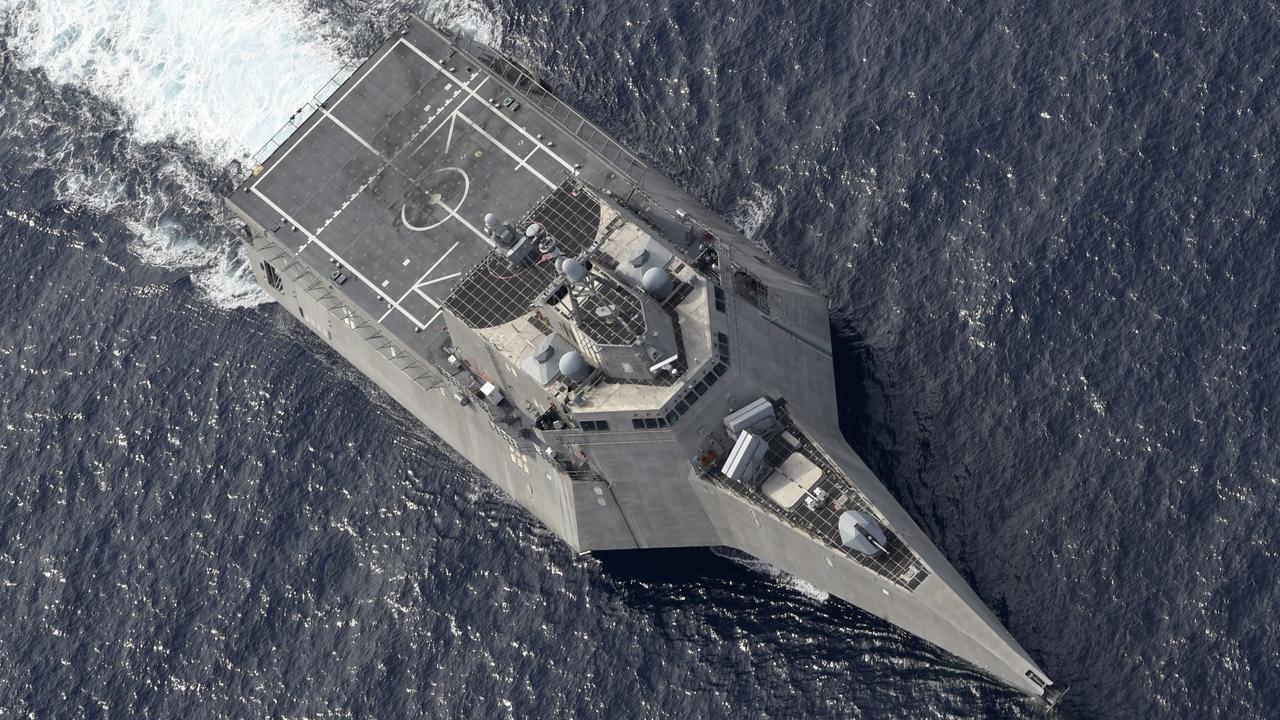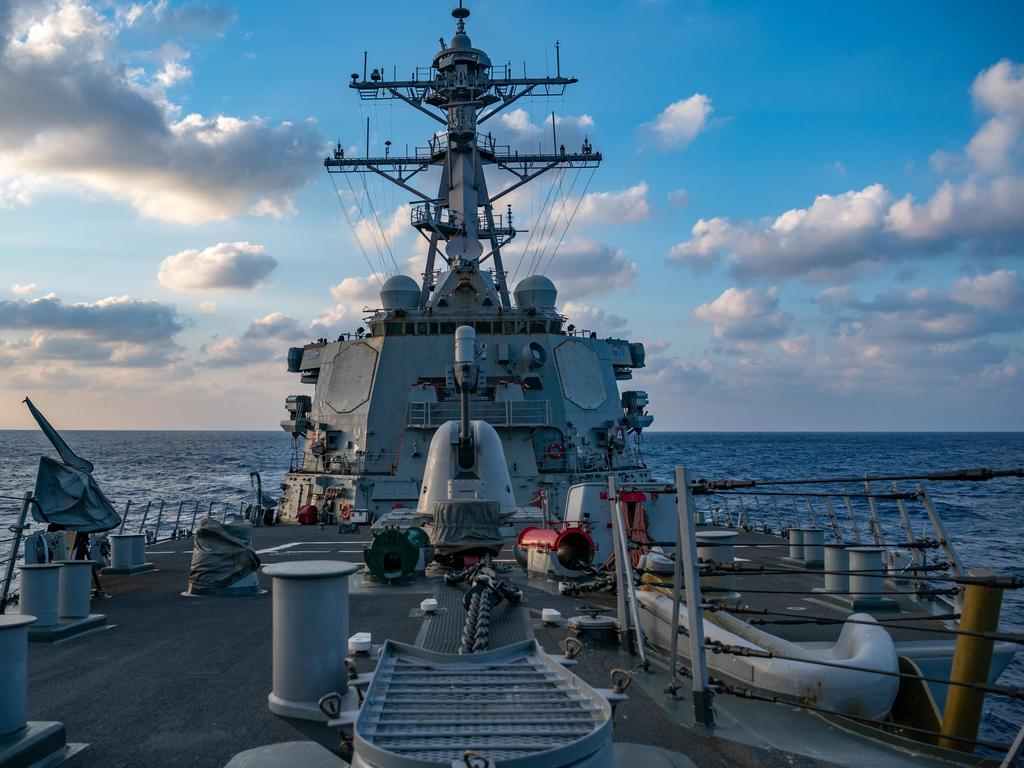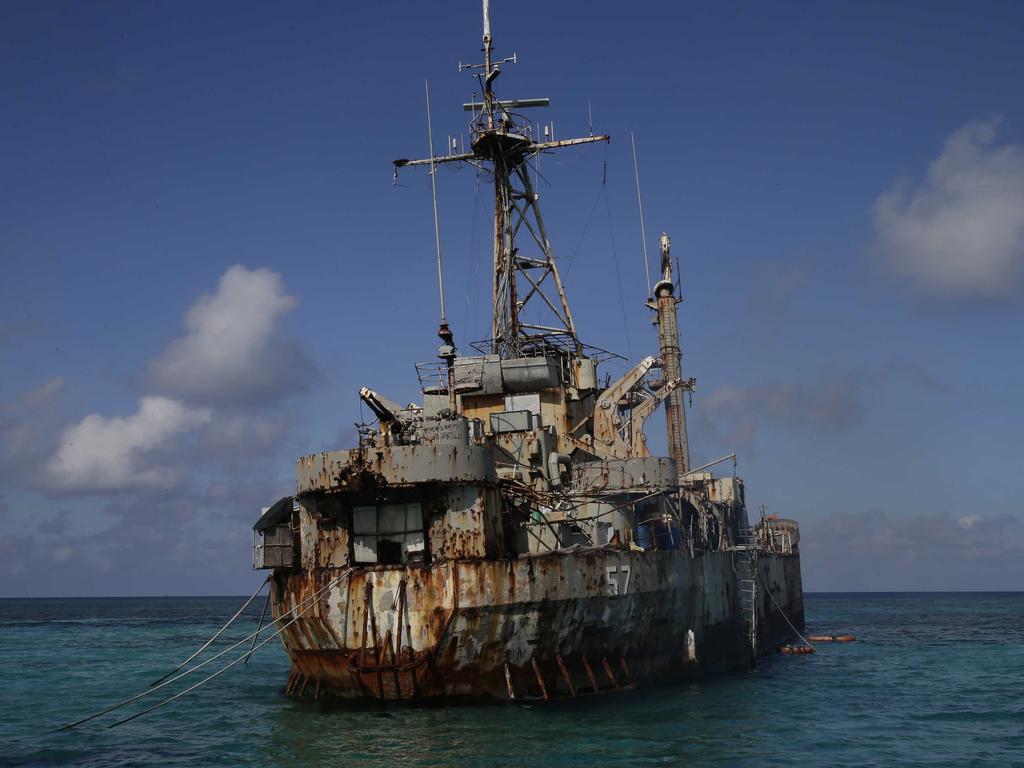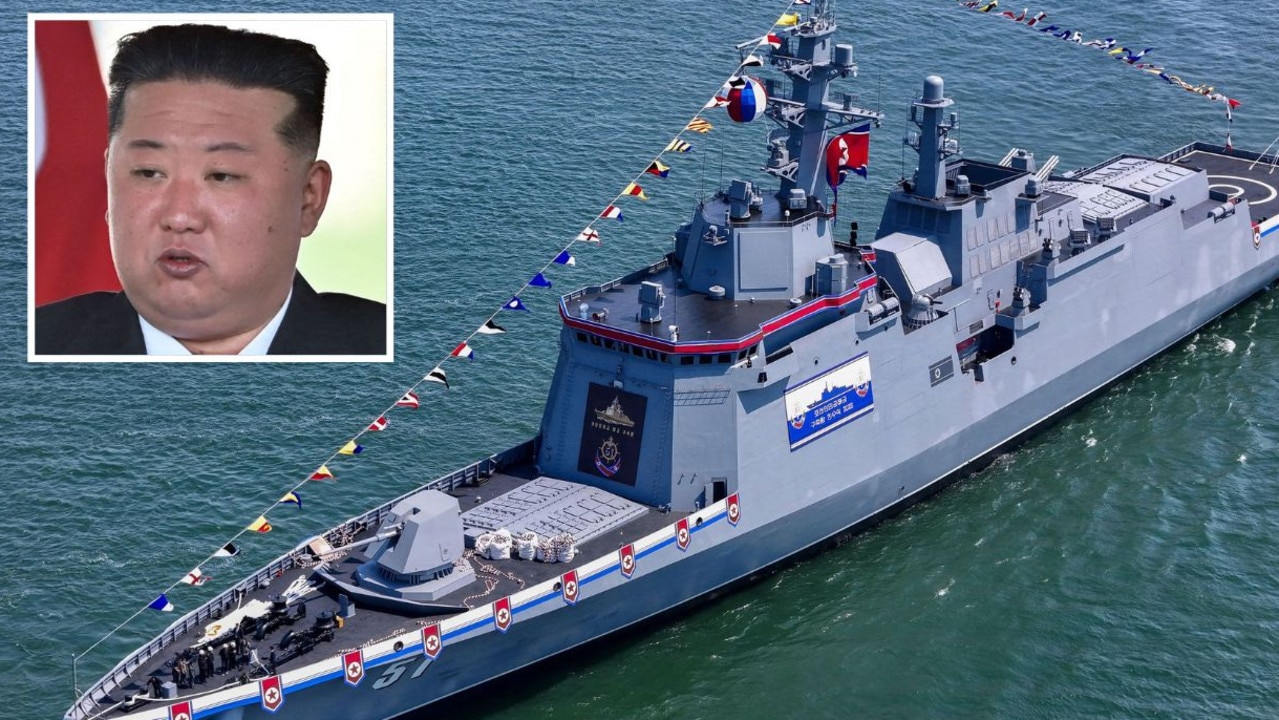Worrying sign China has already won in the South China Sea
There is a worrying sign that constant harassment from Beijing means the West is out on a limb against China.

Beijing has already won the South China Sea. The United States navy may be sailing its waters with impunity – but nobody else is.
Constant harassment is forcing Southeast Asian nations to retreat from their own waters. And that’s leaving the West out on a limb.
Asia Maritime Transparency Initiative (AMTI) director Gregory Poling says China’s advantage in missiles, aircraft and artificial island fortresses could quickly turn the South China Sea into a “shooting gallery”.
“It would quickly become clear that the United States could not protect American naval warships operating in the area,” he argues in a new diplomatic journal article.
And Southeast Asian nations know this.
“The more Chinese pressure builds, the more support for the United States seems like a bad bet — one that benefits Washington but not its partners,” Polling writes in Foreign Affairs.
Either way, nations such as Vietnam, the Philippines, Malaysia and Indonesia face losing access to their United Nations defined territorial seas. But, by pandering to China, they may hope to limit the diplomatic fallout. At least for a while.

Mind games
Polling says China isn’t looking for a fight. The cost outweighs the benefits – even if it beats the US Navy.
“What China really wants is to convince the rest of Asia that the contest for primacy is already over,” Polling argues.
Peacetime’ grey zone’ intimidation tactics are already achieving what outright conflict may not: regional control. China’s fishing militia and coast guard have been steadily forcing back the fishing fleets of Vietnam and the Philippines. Its survey vessels and navy have been interfering with efforts by Malaysia and Indonesia to explore oil and gas deposits.
But these forces melt away as the US Navy sails past.
In doing so, Polling says, “China hollows out the value of the United States as a regional security provider”.
Instead, Southeast Asian nations may begin to turn on each other to secure the scraps left over from Beijing’s territorial grab. And this would play into China’s hands by further undermining the UN Convention on the Law of the Sea (UNCLOS).
“The net effect would be a regional and global order that is less stable and much more threatening to the interests of the United States and its remaining allies,” says Polling.
Futile fight
“Given how many vessels China has deployed to its neighbours’ waters and how aggressively the Chinese government encourages them to behave, a loss of life seems inevitable,” Polling warns.
And Washington may be backing itself into a corner where conflict becomes inevitable.
By loudly defending the victims of Beijing’s expansionist aggression, denying any request for military intervention will be difficult.
And that’s despite being in a very poor position to do so.
Polling says one critical test of Washington’s resolve would be any attempt by Beijing to remove the Sierra Madre – the grounded hulk of a warship maintained by Manila in the Spratly Islands as a territorial outpost.

Sending an aircraft carrier battlegroup in to save the day is no longer an option, he adds. “The truth is that the United States would likely have little choice but to cede the South China Sea in the opening stages of any conflict with China.”
China’s enormous island fortresses are heavily armed and built to be resilient.
“The islands are more defensible than many believe,” Polling says. “This combination of size and fortification means that neutralising the bases could require hundreds of missiles. And US Indo-Pacific Command doesn’t have the ammunition to spare. Anything thrown against the Spratlys would have to be taken away from the defence of Tokyo or Taipei.”
Peer pressure
Beijing is piling pressure on its neighbours, with minimal consequences.
“Since 2016, Beijing has been running away with the game,” Polling says.
And it’s been given little cause to want to reach a compromise.
This is evident in the on-again, off-again South China Sea Code of Conduct with ASEAN nations.
“But that could change if a critical mass of states began treating China the way they do other bad actors — Russia, for instance,” he adds. “That would make it apparent that Beijing’s policies in the South China Sea undermine its larger goals.”
It’s not a quick fix. And it would need a high degree of international unity.
Polling adds that it would also require a hardening of military resolve from Washington.
“US power in Okinawa and Guam won’t matter. The United States needs a small but capable force of air and missile assets in the Philippines, close enough to put Chinese surface ships at risk and to respond to small provocations before they escalate.”
Meanwhile, every effort must be made to reinforce the strength of UNCLOS in resolving territorial disputes.
“It would signal that China can be a global leader or a regional bully, but not both,” Polling concludes.
Jamie Seidel is a freelance writer | @JamieSeidel






